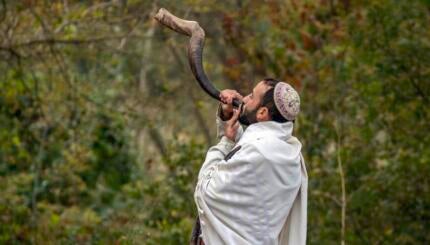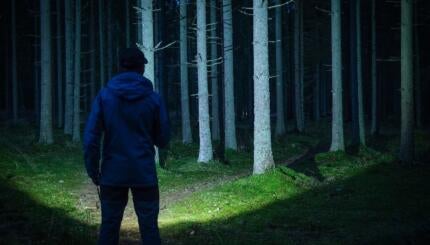If Judaism actually has an essence, I’d suggest nothing captures it better than Franz Kafka’s observation that the meaning of life is that it stops. “Moses fails to enter Canaan, not because his life is too short, but because it is a human life,” Kafka writes in his Diaries.
Judaism accepts that human lives stop whether they are finished or not and offers ways to incorporate this truth into the structure of day-to-day living. It was in this spirit that the second-century teacher Eliezer taught his students: “Repent one day before you die.” He did not mean that you should defer the work of self-correction and forgiveness until you feel the imminence of death, but just the opposite: Given that the interruption can occur at any moment, repent now.
But Judaism’s most central teaching about stopping comes directly from God. After six frantic days of creation, God took a seventh day to do absolutely nothing. “The heavens and the earth were finished,” the text reports. “God had completed the work he had done on the seventh day and stopped on the seventh day from all the work he had done. And God blessed the seventh day and made it holy, for on that day God stopped all the work that God had created to do.”
Note that this seventh day did not celebrate the work of creation. God had already declared with apparent delight that he had reviewed all he had made and it was indeed “very good.” Rather, the seventh day celebrated God having finished the work. The Hebrew word used here to mean “stop” is Shabbat, the word we use today for the Jewish sabbath. This was not a mere stoppage, but a serious, sustained cessation, a whole day dedicated to coming to a halt, as if this is what was required in order for the detail-obsessed, hard-working, no-nonsense Boss to step back, take a break, go to a spa and let the foreman run the factory.
With your help, My Jewish Learning can provide endless opportunities for learning, connection and discovery.
As you may recall, God had begun it all by barking orders like a Hollywood film director. Let there be light! Done. Let there be darkness at night and light at day! Done. Let there be dry land! Vegetation! Animals! Done. Done. Done. Then God entered the maelstrom of human relations, creating the human being in God’s image and enjoining it to be fruitful and multiply and fill the earth. Then God went silent, shut down, looked away.
Was the work really done? Had God honed creation to perfection? Had God grown wistful, lost interest, been distracted, fainted into exhaustion? We do not know, but it seems that God chose to observe the first Shabbat as a conscious interruption, a sublime retreat. Why?
Many of us sense that our planet is in a state of crisis, that an age of climatic catastrophe has begun and that the primary cause of it is us — specifically, our virtually unrestrained use of earth’s resources for what we deem to be technological progress and national security. Or put another way, because we fear that if we stop growing we will die.
No one has written more thoughtfully about this moment in human evolution than the author Bill McKibben, who concludes his 2019 book, Falter: Has the Human Game Begun to Play Itself Out?, like this: “The turtle does what she does, and magnificently. She can’t not do it, though, any more than the beaver can decide to take a break from building dams or the bee from making honey. But if the bird’s special gift is flight, ours is the possibility of restraint. We’re the only creature who can decide not to do something we’re capable of doing. That’s our superpower, even if we exercise it too rarely … We can wreck the earth as we’ve known it, killing vast numbers of ourselves and wiping out vast swaths of other life … or we can accept with grace that each of us has a moment and a place.”
By this reading, being created in God’s image means having the capacity to stop what you are doing, and to choose not to do what you are planning. As a species, we are today in God’s place. Since the future of the planet is in our hands, God’s prayer, imagined long ago by an ancient rabbinic sage, is now our prayer: “May my love overcome my rage.”
And it is for us now to enter the seventh day, to join with and welcome others into a great stopping, a universal sabbatical within which we may just discover a way not to do what we are so well primed and ready to do. We could just stop.



